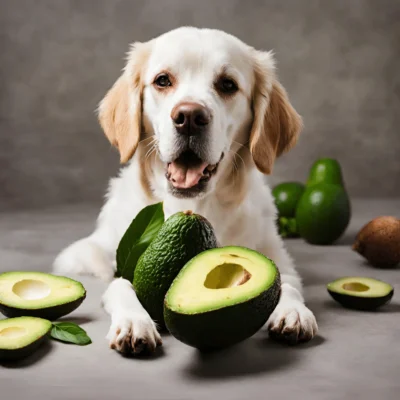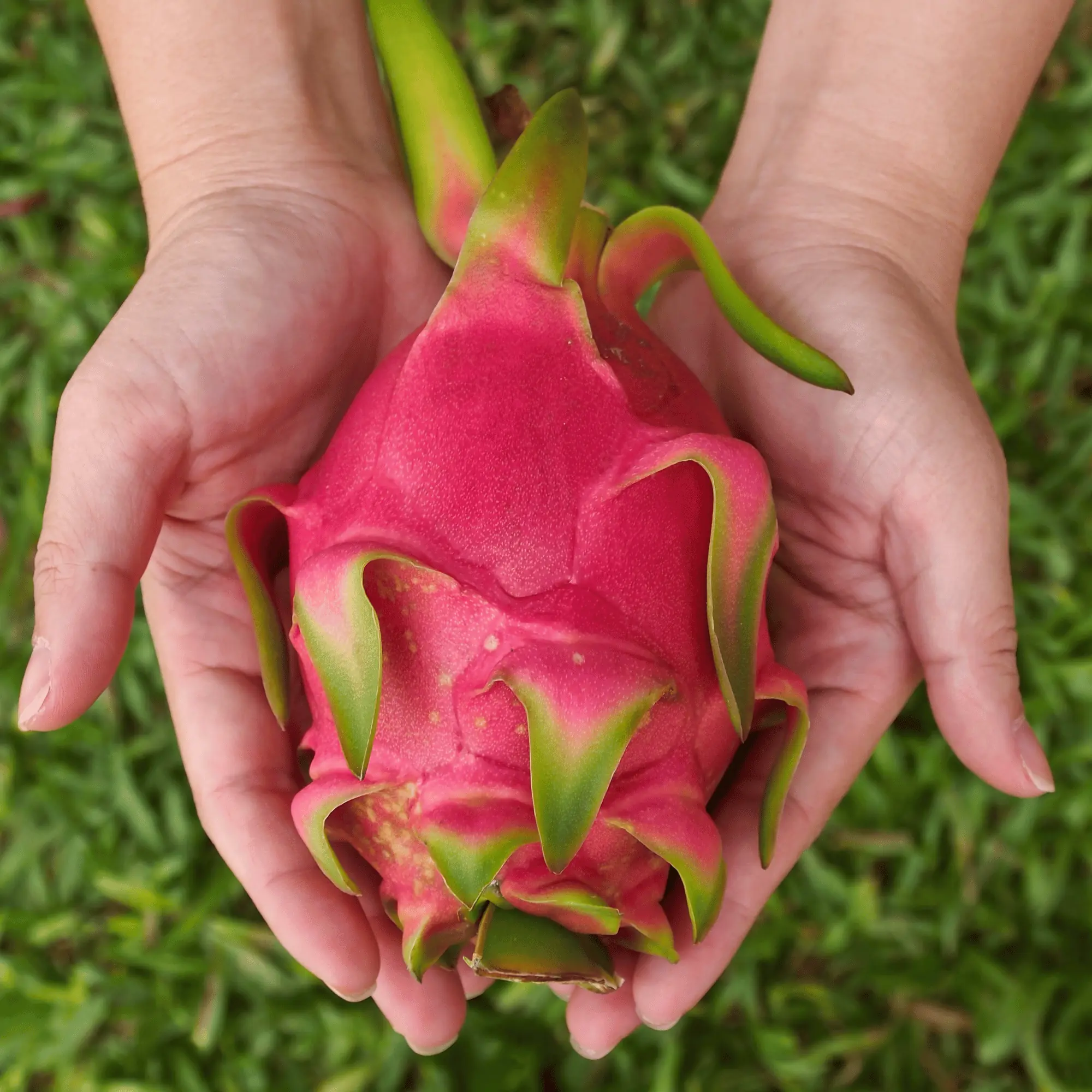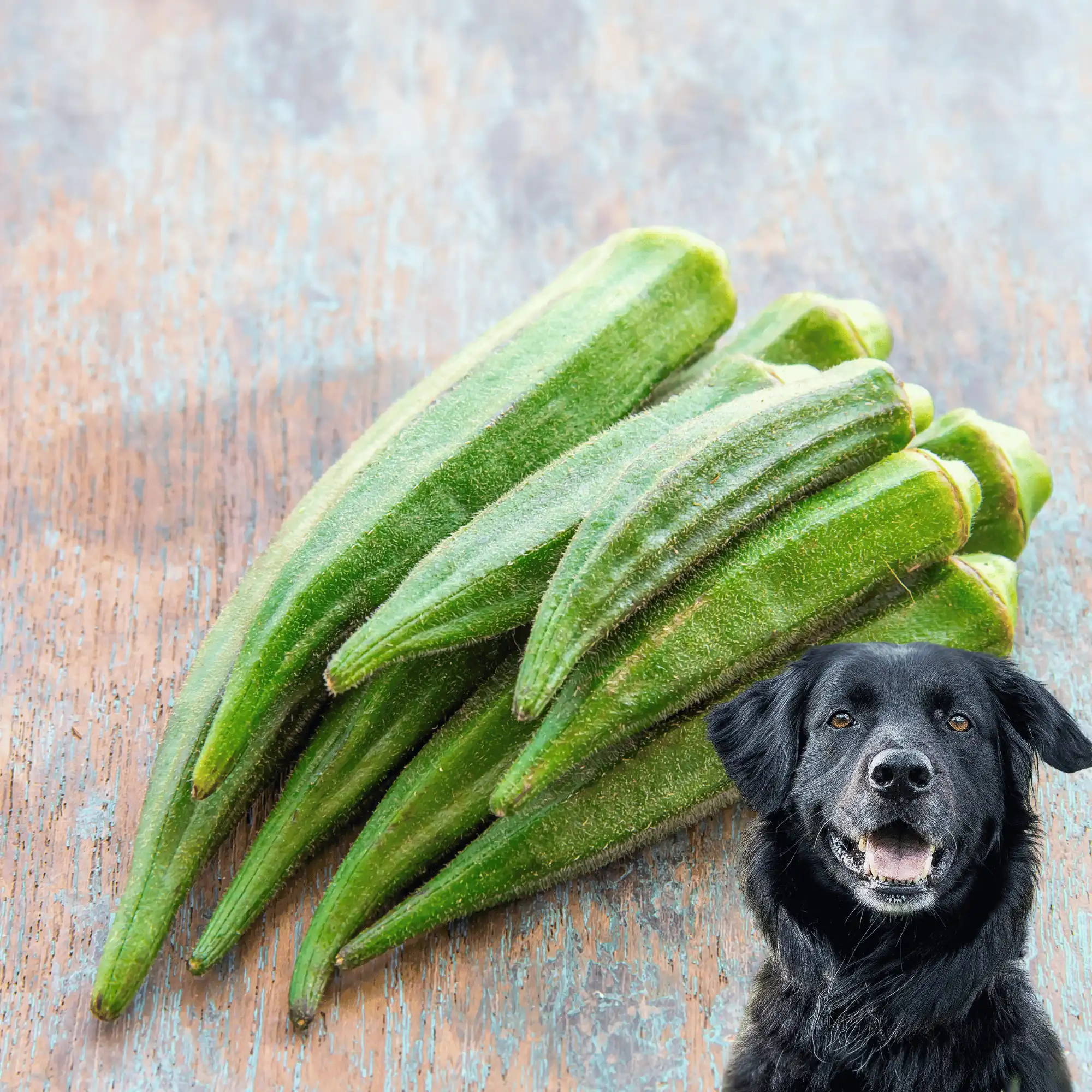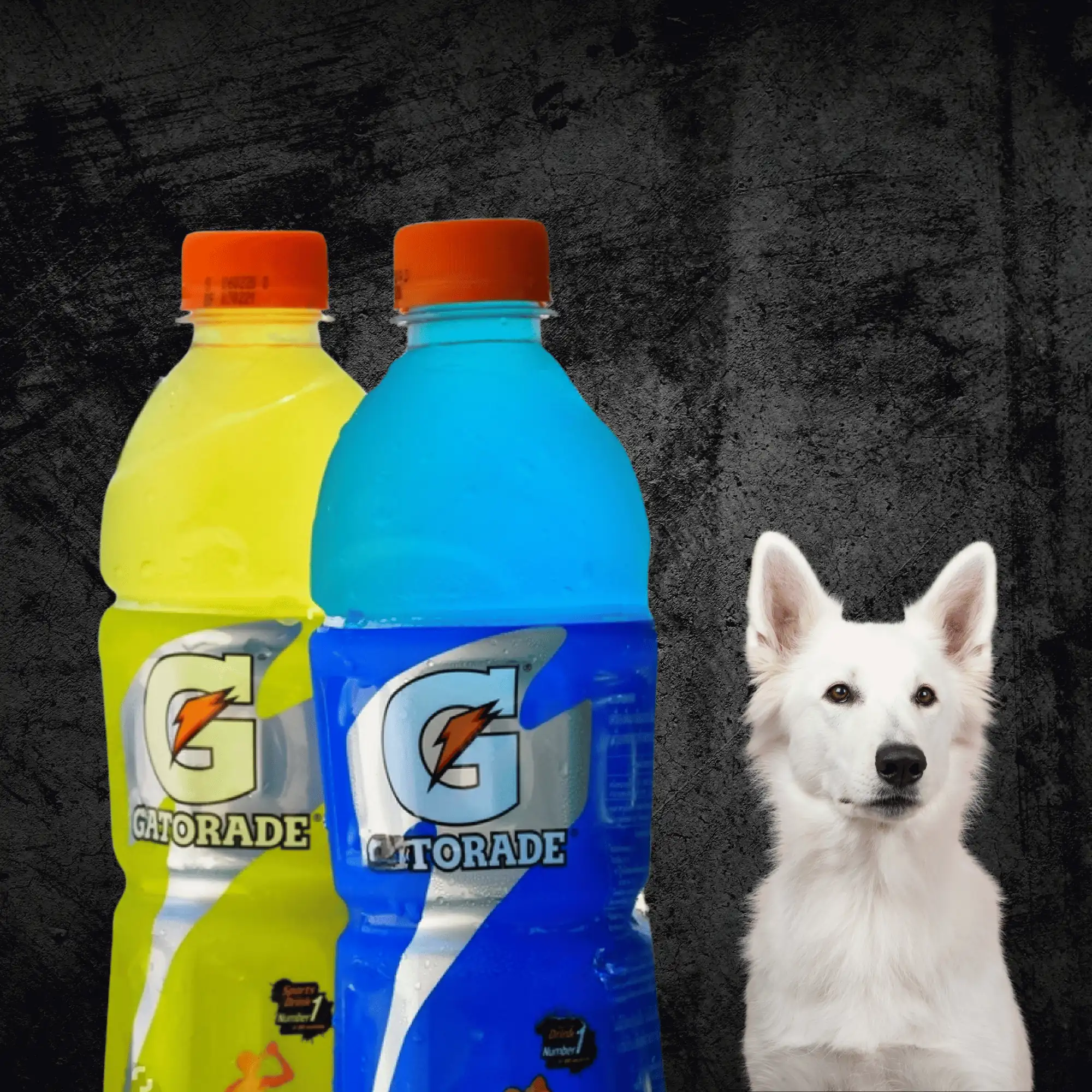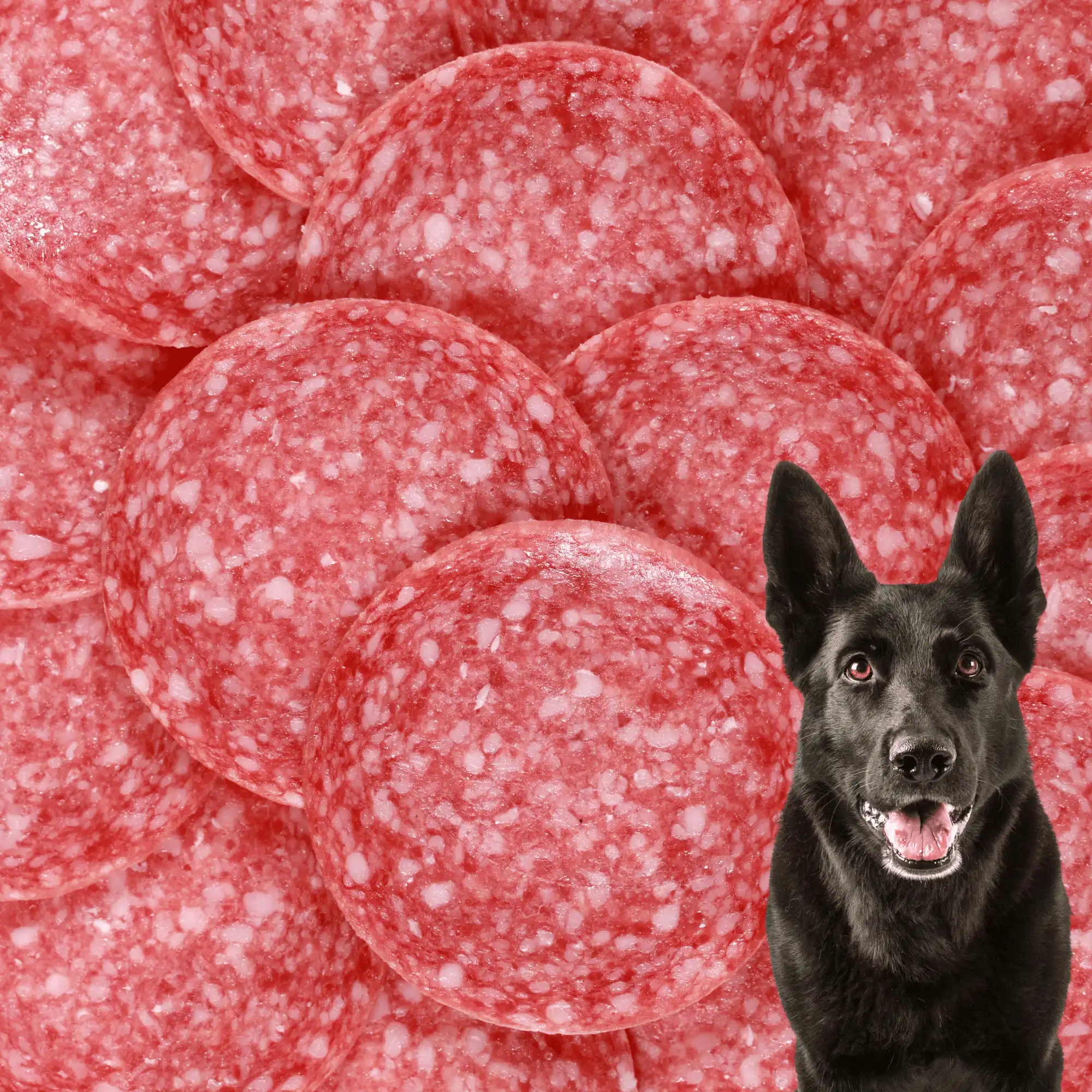Avocado is a popular fruit around the world, but can you share it with your dog? The answer is yes, dogs can eat avocado in small quantities. They are not toxic to dogs, but if you don’t follow the right practices, they can cause many health problems for your dog. It is important to become aware of the benefits and risks of feeding avocados to your dog.
In this article, we will discuss in detail whether dogs can eat avocados. We will discuss the benefits and risks involved in feeding avocados to dogs, and we will also learn about the right way to feed avocados to your dog.
Here are the topics we’re going to discuss in this blog post:
- Are avocados safe or unsafe for dogs?
- Benefits for dogs of eating avocado
- Problems of dogs eating avocados
- The right way to feed avocados to your dog
- Signs and symptoms of avocado poisoning in dogs
Are Avocados Safe or Unsafe for Dogs?
It depends on a few factors, like how much and which part of the avocado they eat.
Avocados are not toxic to dogs, but large portions contain an element called persin, which is not good for your dog’s health. Persin is found in all parts of the avocado plant but is most concentrated in the pit, skin, and leaves.
Dogs can only eat the inner portion of an avocado in a small quantity. If a dog eats avocados in large quantities, it could cause a variety of health problems in dogs, including vomiting, diarrhea, weakness, lethargy, abdominal pain, and difficulty breathing. In some cases, persin poisoning could be fatal.
Avocados also contain a high amount of fat. If your dog eats too many avocados, it can cause pancreatitis, which is a painful inflammation of the pancreas.
Benefits for Dogs of Eating Avocado:
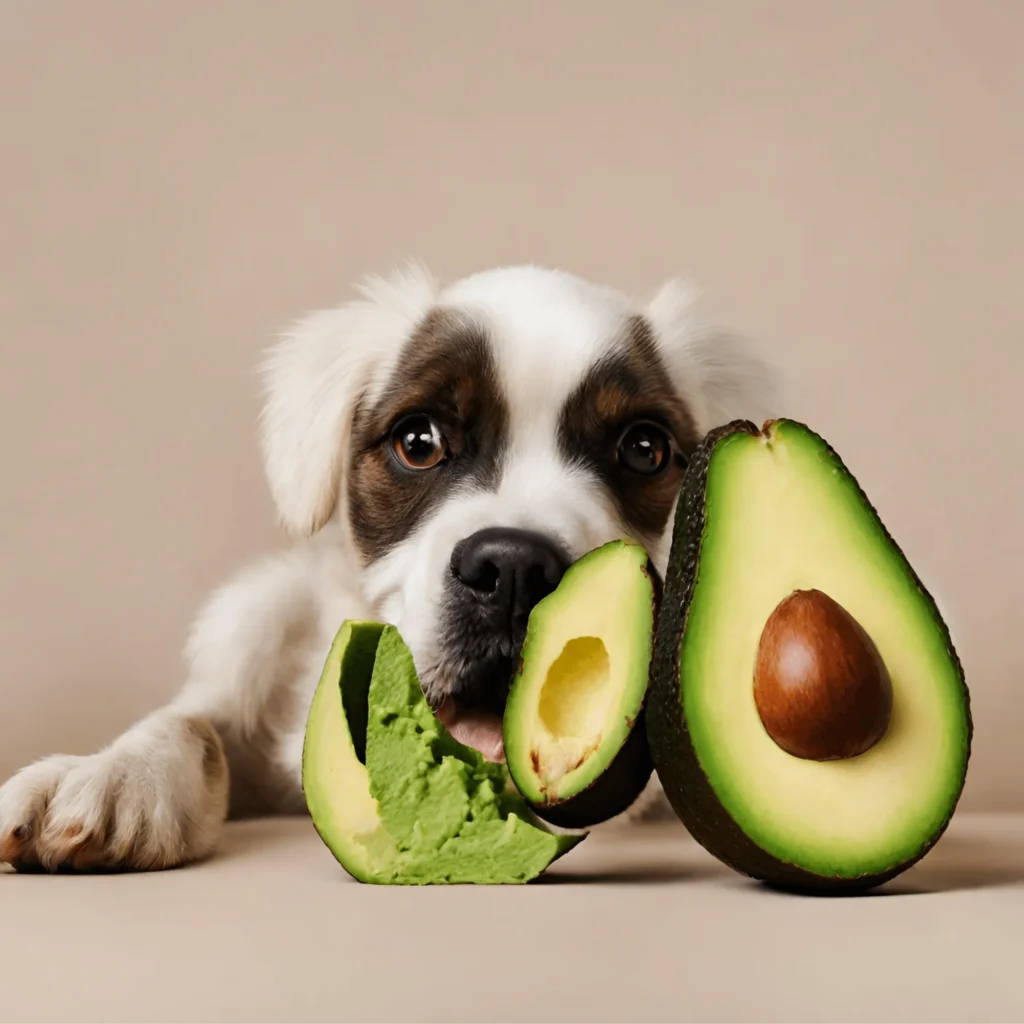
You can give a small amount of avocado to your dogs. It has some potential health benefits, including:
- Vitamins and minerals: Avocados have vitamins A, B6, C, and E, and some minerals such as potassium, magnesium, and fiber. The nutrients play a very important role in overall health and well-being, and these nutrients also support many important body functions, such as:
- Eye Health
- Skin and coat health
- Immune function
- Digestion
- Muscle and nerve function
- Healthy fats: Avocados are a good source of healthy fat. Avocados contain fats like monounsaturated and polyunsaturated fats, which can help to improve cholesterol levels, reduce inflammation, and protect against heart disease.
- Antioxidants: Avocados can help protect your puppy’s body from cancer and heart disease. Antioxidants in avocados help protect the body from free radicals, which contribute to the development of cancer and heart disease.
Problems of Dogs Eating Avocados:
Avocados can cause many problems for your dog. Here are some of the problems that can be dangerous for your dog’s health with tips to prevent your dog from eating avocado:
- Choking hazard: The avocado pit is a large, hard seed. If your dog eats that seed, it can get caught in the throat and block the airway.
- Persin poisoning: A toxin known as persin is present in avocados. Persin is dangerous for dogs. Even a small amount of persin can cause health issues like vomiting, diarrhea, and stomach upset in dogs.
- Pancreatitis: Avocados also contain a high amount of fat. If your dog eats too many avocados, it can cause pancreatitis, which is a painful inflammation of the pancreas.
- Gastrointestinal upset: If your dog has not had any reaction to avocados, it is still possible for your dog to have stomach upset, diarrhea, and vomiting.
What to do if your dog eats avocado?
If your dog eats avocado, contact your veterinarian immediately. They will take care of your dog’s situation and tell you what to do next.
Tips to prevent your dog from eating avocado:
Here are some tips to help you prevent your dog from eating avocado:
- Put the avocados in the refrigerator or in a cupboard.
- Avoid leaving them on the floor or in any area.
- Make sure your dog can’t get it from the garbage. Try to invest in it and make it secure for them.
The Right Way to Feed Avocados to Your Dog:
If you want to share your avocado with your dog, you need to know the right way to feed it. Here are some tips:
- Only feed the flesh of the avocado: It is important to remove the pit, skin, and leaves of avocados before feeding them to your dog. Only feed your dog the flesh of the avocado.
- Start with a small amount: In the beginning, feed only small pieces of avocado to your dog. Then monitor your dog closely and check for any signs of illness. If your dog is completely normal, then slowly increase the amount of avocado that you feed it.
- Avoid feeding avocados to dogs with pancreatitis: As I mentioned before, avocados are high in fat. This high fat can cause pancreatitis in dogs. If your dog has a history of pancreatitis, then you should avoid feeding them.
Remember, it’s better to consult with your veterinarian before feeding your dog avocados.
Signs and Symptoms of Avocado Poisoning in Dogs:
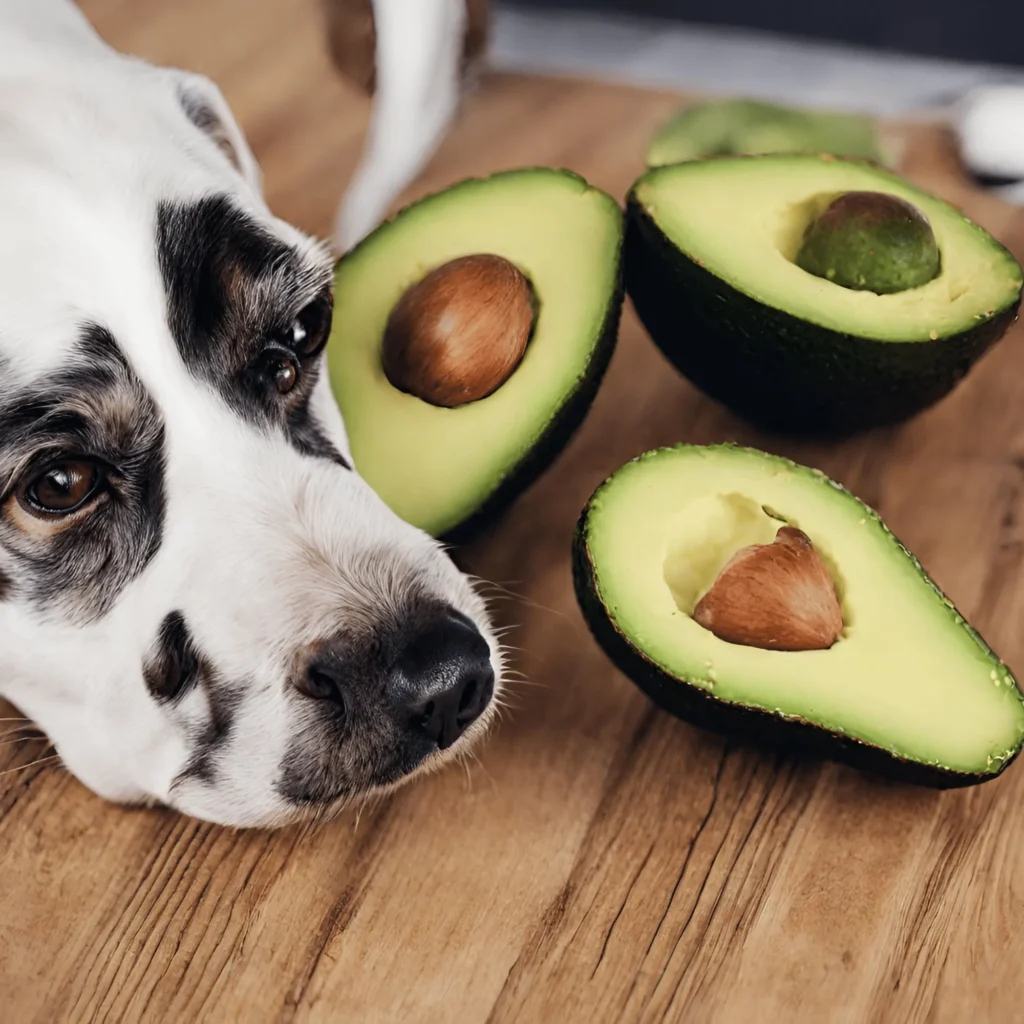
Signs and symptoms of avocado poisoning can depend on two things:
- How much avocado your dog ate
- How sensitive your puppy is to persin
Common signs and symptoms of avocado poisoning in dogs include:
- Diarrhea
- Vomiting
- Lethargy
- Weakness
- Abdominal pain
- Difficulty breathing
- Increased heart rate
- Cyanosis (a bluish tint to the gums and lips)
- Collapse
In some cases, persin poisoning could be fatal.
Conclusion:
Avocados are not safe for dogs in large quantities. A toxin is present in avocados known as persin, which is poisonous to your puppy. A small amount of persin can also cause stomach upset, vomiting, and diarrhea in your pup. In some cases, persin poisoning can cause heart problems and death.
You can only share the flesh of the avocado with your dog in small quantities. Don’t forget to remove the pit, skin, and leaves of the avocado before feeding it to your dog. Also, if your dog has any history of pancreatitis, you should avoid feeding them the avocado.
Overall, you should avoid feeding avocados to your dogs. You can feed other safe and healthy foods to your dog for better health and nutrition. If your dog eats avocado, contact your veterinarian as soon as possible. They will take care of your dog’s situation and give you the correct piece of advice.
References:
- “Can Dogs Eat Avocado?” By American Kennel Club, https://www.akc.org/expert-advice/nutrition/can-dogs-eat-avocado/
- “Avocado Toxicosis in Animals” By Merck Veterinary Manual https://www.merckvetmanual.com/toxicology/food-hazards/avocado-toxicosis-in-animals
- “The Scoop on Avocado and Your Pets” By ASPCA https://www.aspca.org/news/scoop-avocado-and-your-pets
FAQ’s about Dog’s Eating Avocado:
Check out these FAQs to learn more about dogs eating avocados.
What if my dog eats a little avocado?
A small amount of avocado usually does not cause any serious problems to your dog. It’s important to monitor your dog closely for any sign of illness, such as diarrhea, vomiting, or difficulty breathing. If you are wondering about your dog, contact your veterinarian for the best advice.
Can dogs eat avocado with milk?
No, dogs cannot eat avocados with milk. The reason is that avocado is high in fat and milk also has a lot of fat in it. Because of the high fat content, dogs can get health problems like stomach upset and digestive problems.
Can a dog eat half an avocado?
No, a dog should not eat half an avocado. A toxin known as persin is present in avocados. Persin is dangerous for dogs. Even a small amount of persin can cause health issues like vomiting, diarrhea, and stomach upset in dogs.
How much avocado will kill a dog?
It depends on how much avocado your dog eats and how sensitive your pup is to persin. Even a small piece of avocado can cause a serious problem in your dog.
How much avocado can dogs safely eat?
You should avoid feeding avocados to your dogs. If you decide to feed them, then only share the flesh of the avocado with your dog in small quantities. Don’t forget to remove the pit, skin, and leaves of the avocado before feeding it to your dog.
What should you do if your dog eats avocado?
Contact your veterinarian immediately for the right advice. They will examine the situation and tell you what steps you should take next.






